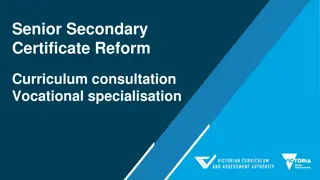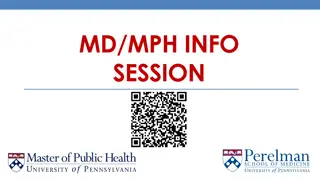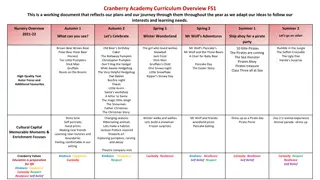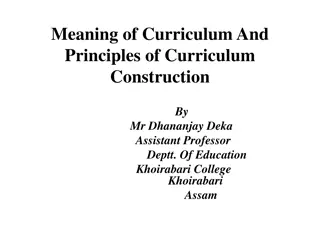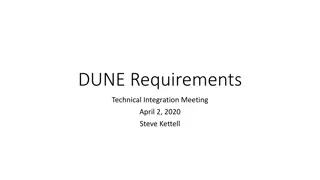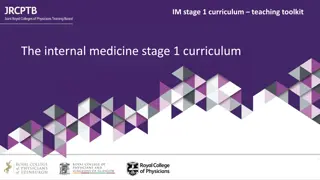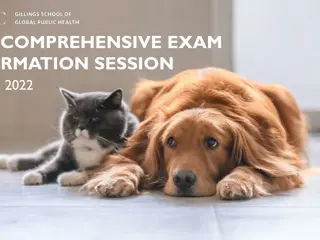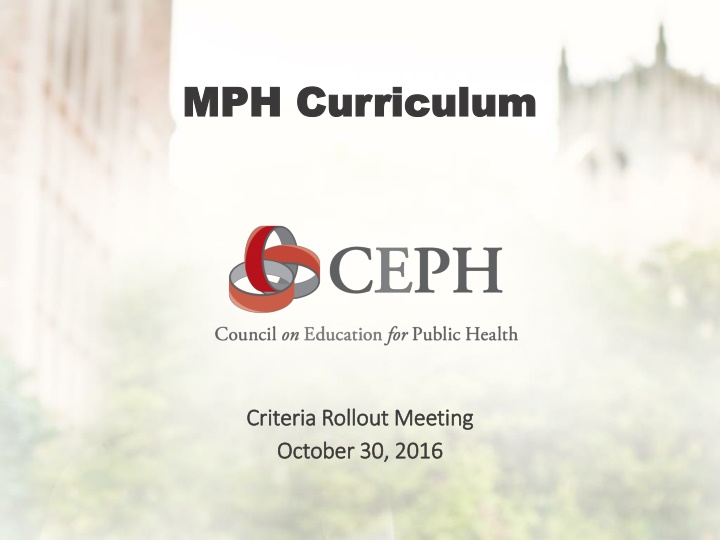
MPH Curriculum Overview and Requirements
Explore the MPH curriculum including foundational knowledge, core competencies, concentration requirements, practicum, and integrative learning experiences. Learn about the program length, foundational public health knowledge, assessment methods, competencies, and required documentation.
Download Presentation

Please find below an Image/Link to download the presentation.
The content on the website is provided AS IS for your information and personal use only. It may not be sold, licensed, or shared on other websites without obtaining consent from the author. If you encounter any issues during the download, it is possible that the publisher has removed the file from their server.
You are allowed to download the files provided on this website for personal or commercial use, subject to the condition that they are used lawfully. All files are the property of their respective owners.
The content on the website is provided AS IS for your information and personal use only. It may not be sold, licensed, or shared on other websites without obtaining consent from the author.
E N D
Presentation Transcript
MPH Curriculum MPH Curriculum Criteria Rollout Meeting Criteria Rollout Meeting October 30, 2016 October 30, 2016
Curriculum Overview Foundational Knowledge Core Competencies Foundational Competencies Concentration Competencies Concentration Competencies Practicum Applied Practice Experience Culminating Experience Integrative Learning Experience
D10. MPH Program Length 42 semester-credit hours, 56 quarter- credit hours or the equivalent
D1. Graduate-Level Professional Foundational Public Health Knowledge CEPH-accredited BSPH or MPH Grounding in Foundational Knowledge Through Achievement of 12 Learning Objectives ASSESSMENT Test/Assessment of knowledge 6 Profession and Science of Public Health 10 Essential Services, causes of mortality, etc. Foundational course 6 Factors Related to Human Health Coverage across curriculum Environmental factors, health inequities, etc.
D1. Required Documentation Document Request 1 i Describe how students receive grounding in foundational knowledge (eg, through coursework, previous degree, etc.) Document Request 2 h Evidence of methods described in request 1 (eg, syllabi, tests, policies in student handbook, etc.)
D2. MPH Foundational Competencies All MPH students attain 22 competencies across 8 domains Every student assessed on each competency at least once Evidence-based Approaches to Public Health 1 5 Leadership Public Health & Health Care Systems 6 2 Communication Planning & Management to Promote Health 3 7 Interprofessional Practice 4 8 Policy in Public Health Systems Thinking
D2. Required Documentation l Document Request 1 List required coursework and learning experiences for each concentration (may use Template D2-1) l Document Request 2 Provide a matrix using Template D2-2 to indicate the specific assessment activity for each foundational competency l Document Request 3 Provide most recent syllabi for each course listed in Template D2-1
Template D2.2. Foundational Competencies Assessment of Foundational Competencies for MPH in Community Health Competency Course number(s) or other educational requirements Specific assessment opportunity Evidence-based Approaches to Public Health 1. Apply epidemiological methods to the breadth of settings & situations in public health practice 2. Select quantitative and qualitative data collection methods appropriate for a given public health context 3. Analyze quantitative and qualitative data using biostatistics, informatics, computer-based programming and software as appropriate 4. Interpret results of data analysis for public health research, policy and practice MPH 603: Principles of Epidemiology MPH 670: Research Methods Assignment 2: simple random sampling Week 15: project - mixed methods study design Exam 3: covers course learning objectives 2-9 MPH 605: Intro to Biostatistics MPH 603: Principles of Epidemiology Week 7: powerpoint presentation - LGBTQ health inequities Public Health & Health Care Systems 5. Compare the organization, structure and function of health care, public health and regulatory systems across national and international settings MPH 602: Health Care Systems Week 3: discussion question post and response
D4. Concentration Competencies At Least 5 Concentration Competencies Assessment Activity MPH Validation Articulates Depth in Concentration Area or Beyond Foundational Competencies Applies to all Concentrations and Generalist Degree Define at Least One for Each Competency By Faculty or Other Qualified Individual
D4. Required Documentation l Document Request 1 In Template D4-1 list at least 5 concentration/generalist competencies and at least 1 assessment activity for each l Document Request 2 If students can tailor competencies in consult with advisor, provide evidence that a matrix is used (eg, Template D4-1) l Document Request 3 Provide most recent syllabi for each course listed in Template D4-1
Template D4.1. Concentration Competencies Assessment of Concentration Competencies for MPH in Biostatistics Competency Course number(s) or other educational requirements 1. Ability to select appropriate research designs to meet the needs of various studies and ability to explain the limitations of implemented designs Specific assignment(s) that allows assessment Week 4: SAS exercise 3 MPH 735: Statistical Methods for Public Health Research PUBH 793: Clinical Trials I Project: cohort designs Homework 6: randomized block designs Homework 2: analysis of variance (ANOVA) 2. Apply common probability distributions to public health outcomes 3. Analyze moderately complex research data using statistical methods involving common linear statistical models MPH 752: Biostatistics II STAT 740: Advanced Regression Analysis Homework 3: simple linear regression Quiz 2: multiple linear regression Week 3: R exercise 1 MPH 735: Statistical Methods for Public Health Research STAT 722: Applied Multivariate Methods 4. Apply and interpret common univariate and multivariate statistical methods for inference 5. Communicate commonly used statistical ideas and methods to collaborators in non-technical terms, both orally and in writing Week 3: SAS exercise 2 MPH 741: Biostatistical Case Studies & Collaboration MPH 720: Applied Practice Experience Paper: case control designs PowerPoint presentation on deliverables for host site(s)
D5. MPH Applied Practice Experiences Competencies Addressed Applied Activities Mode of Completion Assessment Method At least 5 competencies (3 must be foundational) Internships Individual or group based Student portfolio with at least 2 products Community- based course activities Discrete experience or completed across course of study Co-curricular activities Non-academic setting Credit or non- credit bearing
D5. Required Documentation l Document Request 1 Use Template D5-1 to index at least 5 competencies to a required opportunity for application in a practice setting l Document Request 2 Provide documentation of the requirements for the applied learning experience (eg, syllabus, handbook, etc.) l Document Request 3 For each concentration provide samples of practice-related materials that demonstrate competencies from at least 5 students in the last 3 years
D7. MPH Integrative Learning Experience Foundational Competencies Concentration Competencies ILE competencies selected in consult with faculty & align with students educational & professional goals Synthesis of Competencies eg, take-home comprehensive exam, policy statement etc. High-quality Written Product faculty or other qualified individual ensures each student addresses defined competencies Faculty Assessment
D7. Required Documentation Document Request 1 In Template D7-1 list the integrative learning experience for each concentration and explain how demonstration of competency synthesis is ensured i Document Request 2 Summarize the process, expectations and assessment for each experience i Document Request 3 Provide documentation that communicates experience policies and procedures to students (ie, syllabus and/or handbook) i Document Request 4 Provide documentation of methods used by faculty or other qualified individual to assess students demonstration of the selected competencies i Document Request 5 For each concentration provide at least 5 graded samples (or 10%) of deliverables submitted in the last 3 years i
Criteria Revision = Quality + Simplicity + Flexibility We are here to answer your questions as you adjust to the new criteria Thank You!!








